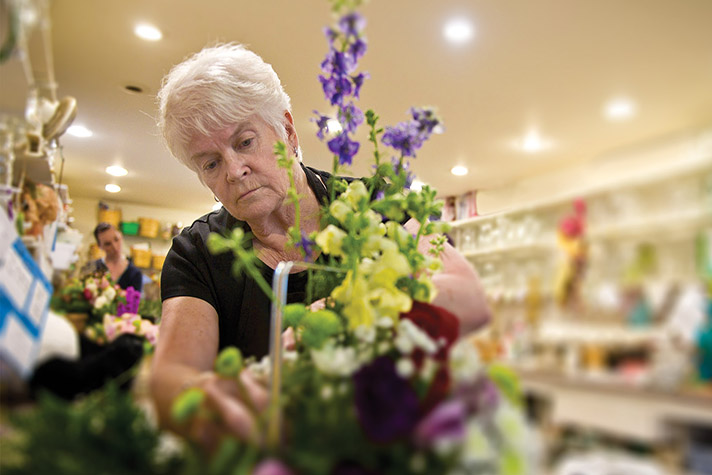After the ruling handed down from the U.S. Supreme Court regarding cake baker Jack Phillips earlier this Spring, many waited in anticipation to hear about Arlene’s Flowers Inc. v. Washington. Florist Barronelle Stutzman is accused of discrimination by respondents Robert Ingersoll and Curt Freed because of her refusal to provide flowers for their wedding due to religious objections against gay marriage. Upon appeal, the U.S. Supreme Court sent the case back to the Washington Supreme Court, ordering them to take a second look at the details of the proceedings in light of the Masterpiece Cakeshop ruling.
Stutzman acknowledged she served the two men for the past ten years, as well as other self-proclaimed homosexual persons. She had no qualms about providing “raw materials” to the men if they wished to use their own artistic talent to create floral arrangements. Her issue was laboring over a flower creation to promote an event she did not morally agree with. It was this problem she laid out for Freed when he approached her, asking for flowers. Stutzman thought the conversation went well and said it ended with a hug before Freed left.
However, Freed walked away, feeling emotionally wounded. A post was made on his Facebook page on February 28, 2013, lamenting the fact Stutzman would not provide what he asked. This supposed discrimination lead to a lack of enthusiasm for the wedding ceremony. Freed and Ingersoll opted, instead, to marry in the privacy of a home with only 11 people in attendance. This story garnered a massive social media response, finally coming to the attention of Washington State. The state sent a letter to the home of Stutzman, asking her to sign a “’Assurance of Discontinuance’, which stated that she would no longer discriminate in the provision of wedding services”. When she refused, a case against Stutzman and her business was filed in April 2013 by the respondents and the state.
In trial court, seven rulings were made that were later appealed to the Washington State Supreme Court. Among these were assertions that Stutzman violated a public accommodations provision in her refusal to serve the men in this particular way and both she and her corporation were responsible. They also ruled the public accommodation provision did not violate her freedom of speech, freedom of religious exercise, or her right to free association.
After hearing Stutzman’s rebuttal of all seven rulings, the Washington Supreme Court chose to uphold the ruling made previously. “We, therefore, hold,” the conclusion of the ruling read, “that the conduct for which Stutzman is cited and fined in this case … constitutes sexual orientation discrimination.” The judges on the case wanted to “serve our state’s government’s compelling interesting eradicating discrimination in public accommodations.” Upon hearing that they chose to uphold the ruling, Stutzman then appealed once more to the U.S. Supreme Court.
The U.S. Supreme Court did not issue a ruling of its own, but instead granted the petition for a writ of certiorari: “The judgment is vacated, and the case is remanded to the Supreme Court of Washington for further consideration in light of Masterpiece Cakeshop v. Colorado Civil Rights Comm’n.” In other words, the Court has voided the previous ruling made by the Washington State court. The lower court must reconsider the decision they made, keeping in mind the case about the cake shop. All in all, it looks to be a potential victory for advocates of Religious Freedom.
No comments yet




